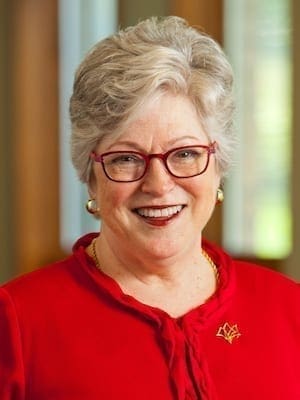Violence erupted in a staid university town this weekend, and the symbolism of the white supremacists was startling.
A Nazi swastika alongside the Confederate “stars and bars” was a mash-up, to be sure, and the U.S. flag was thrown in for good measure, as if all of this was mutually reinforcing.
It is not; it is a hideous conflation of identities, seemingly for the purpose of protesting the variegated diversity that comprises America.
As I turned to the lectionary reading this morning, the first verse of Psalm 133 captured my attention. “How very good and pleasant it is when kindred live together in unity.”
Written long ago, this psalm probably voiced an exhortation to preserve the family, and a common worship of God at Zion was a constructive approach to accomplish that.
St. Augustine thought this text was the foundation for monasteries and their “brotherhood.”
The import of the psalm calls us beyond the insularity of one’s own bonds of kinship or one’s spiritual community.
What might it mean for a deeply fractured nation now?
Unity begins in prayer, carefully considering the perspective of those who oppose us.
St. John of the Cross encouraged this practice. “You might quiet the whole world for a second if you pray. And if you love, if you really love, our guns will wilt.”
So, people of faith begin with prayer, interrogating the prejudice and blindness within each of us.
While prayer is action, it propels us beyond the conversation we have with God to enter new conversations with those with whom we differ. Here attentive listening and patience are required.
I am reminded of Will Campbell’s unconventional approach to racial reconciliation.
A major civil rights activist, he was lampooned by the right and left alike for his work with Martin Luther King Jr. in Birmingham and Selma and for his chaplaincy for KKK members, notably James Earl Ray, King’s assassin. He listened to both.
He saw himself as a bridge, and reconciliation was his life’s work. He not only spoke of racial bigotry and discrimination against black people, he also spoke of “the redneck’s slavery.”
They, too, had a history of dire poverty as a repressed people. These were Campbell’s kin, having grown up in rural Mississippi during the Depression.
Many of his critics thought his attempt to unravel his “knot of contradictions” meant that he could not take a stand for justice. Far from it; he simply refused to see only one body of marginalized people.
Arguably, racial minorities have always borne the disproportionate burden of discrimination; their civil rights have been trampled, and the geography they occupy often disempowers.
The Black Lives Matter movement has not been given to violence; rather, it has called attention to policing practices that reflect racist attitudes and practices. White persons who have taken offense over this movement have yet to perceive the privilege they enjoy.
Unity is hard work; it is never finished; and, it requires repentance and perseverance. It is God’s desire for humanity, and Christians have an exemplar to follow, Jesus Christ.
Molly T. Marshall is president of Central Baptist Theological Seminary (CBTS) in Shawnee, Kansas. A version of this column first appeared on her blog, Trinitarian Soundings, and is used with permission. You can follow CBTS on Twitter @CBTSKansas.

